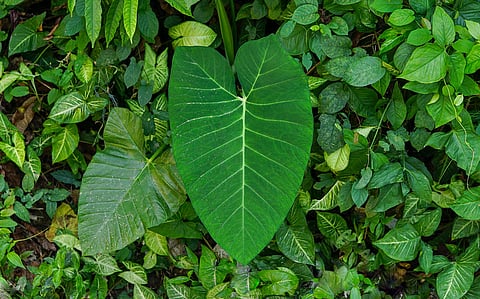

My Food Story is a collection of stories and recipes that celebrate India’s traditional plant-based ingredients sourced from local biodiversity. You can see these recipes on our interactive dashboard (https://www.cseindia.org/page/myfoodstory).
Join us as we showcase the recipes shared with us by the participants of a recently concluded recipe contest.
In villages, this dish is often made during festivals, family gatherings, and especially in the rainy season. It’s also a much-loved traditional snack.
I have a bittersweet memory of it. During the paddy-sowing season, when rain poured nonstop and the whole family worked long hours in the muddy fields, joint pain was a constant companion. At such times, my mother would prepare these pakodas. Their warmth and taste not only comforted us but also eased the pain.
Those rainy days, the smell of fresh pakodas, and my mother’s care are etched in my heart. Even today, I cook this dish not just for its flavour, but for the love, healing, and togetherness it carries.
Brahma Rakas leaf Pakode
Chickpea flour (besan)
Oil
Salt
Turmeric powder
Red chili powder
Coriander powder
Garam masala
Mix chickpea flour with salt, turmeric powder, red chili powder, coriander powder, and garam masala. Apply this mixture evenly on the Brahma Rakas (Elephant Ear or Giant Taro) leaves, roll them tightly, and steam for 30 minutes. Cool for five minutes, cut into pieces, and fry on low heat until golden brown.
Aarti Chicham is a farmer from Madhya Pradesh